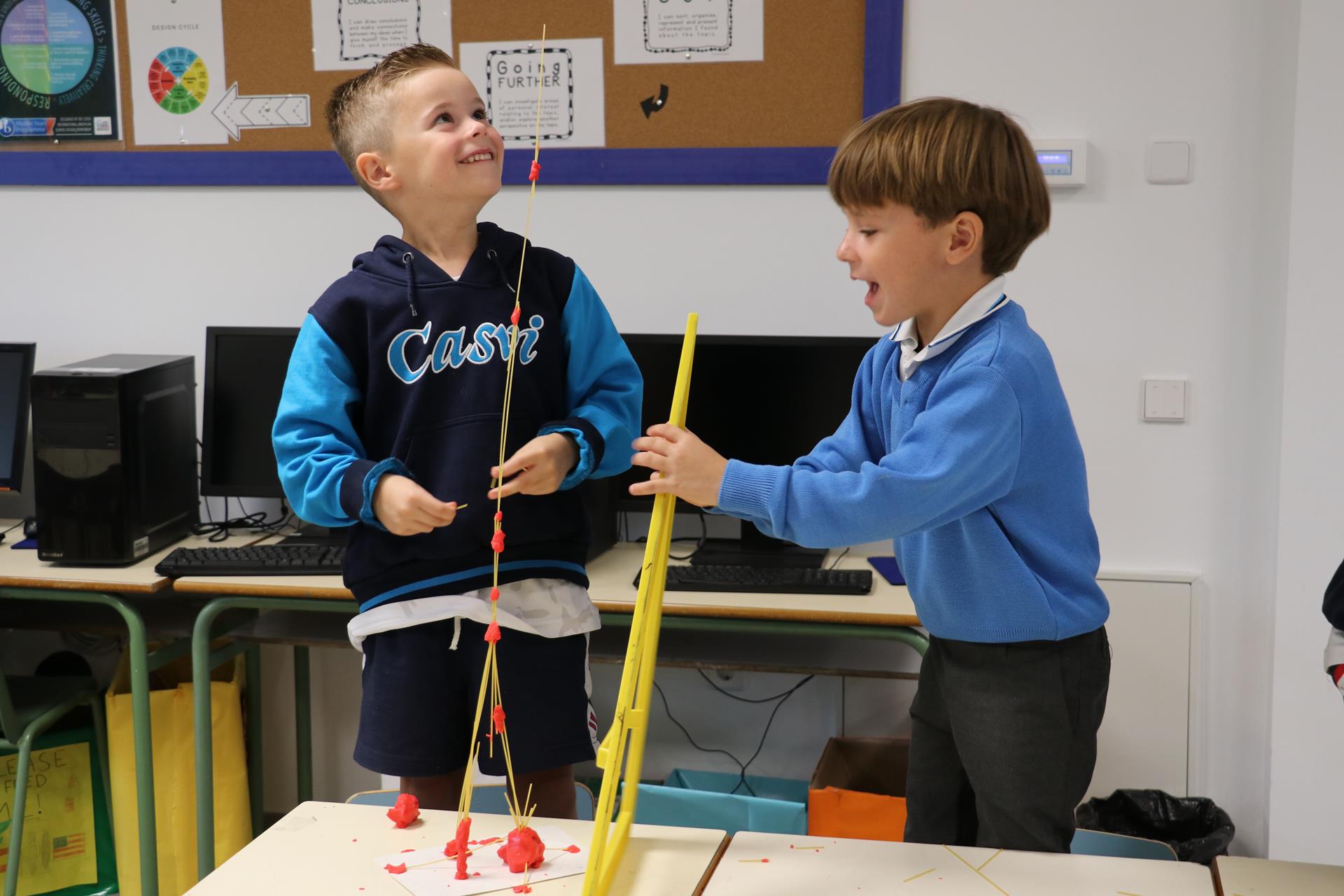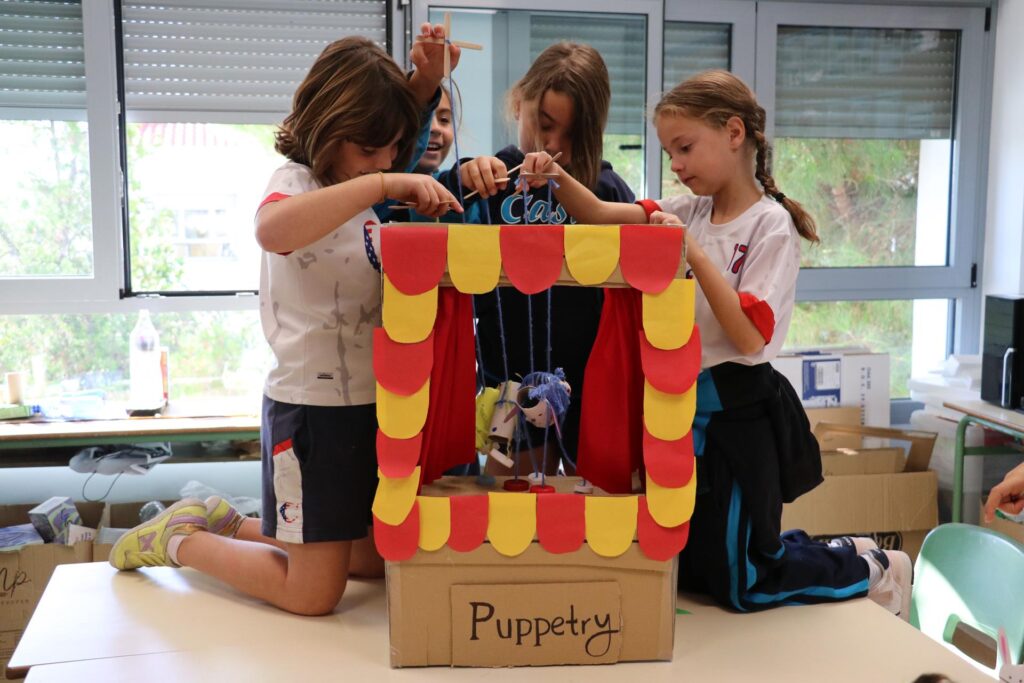
Play is one of the main ways young children acquire essential knowledge and skills. For this reason, more and more teachers are incorporating play-based learning into Pre- School education programs.
This is because, according to scientific research findings, the period of greatest human development occurs between birth and the age of eight. During this stage, “the development of cognitive skills, emotional well-being, social competence, and good physical and mental health forms a solid foundation for success,” states a UNICEF report.
An important aspect of play is the child’s ability to take action (i.e., initiative) and control the experience. In other words, play provides an opportunity for the child to take an active role. It also raises their awareness of their autonomy in the learning journey.
Through play, all areas of development can be simultaneously stimulated, including motor, cognitive, social, and emotional skills. For example, activities carried out in the “play corner” are the most effective way to encourage development and learning competencies.
In fact, working with tangible objects helps them better understand abstract concepts. For example, playing with geometric blocks helps them understand that two squares can form a rectangle or that two triangles together make a square.
On the other hand, simulation or “symbolic” games—such as playing at professions—are very beneficial, as they allow children to express their ideas, thoughts, and feelings. They also learn to control their emotions, interact with others, resolve conflicts, share, negotiate, and develop a sense of competence. In fact, leadership skills can even be worked on.
Active play also has physical benefits, as children strengthen their gross and fine motor skills. Running, jumping, climbing, and manipulating objects stimulate their coordination, balance, and manual dexterity.
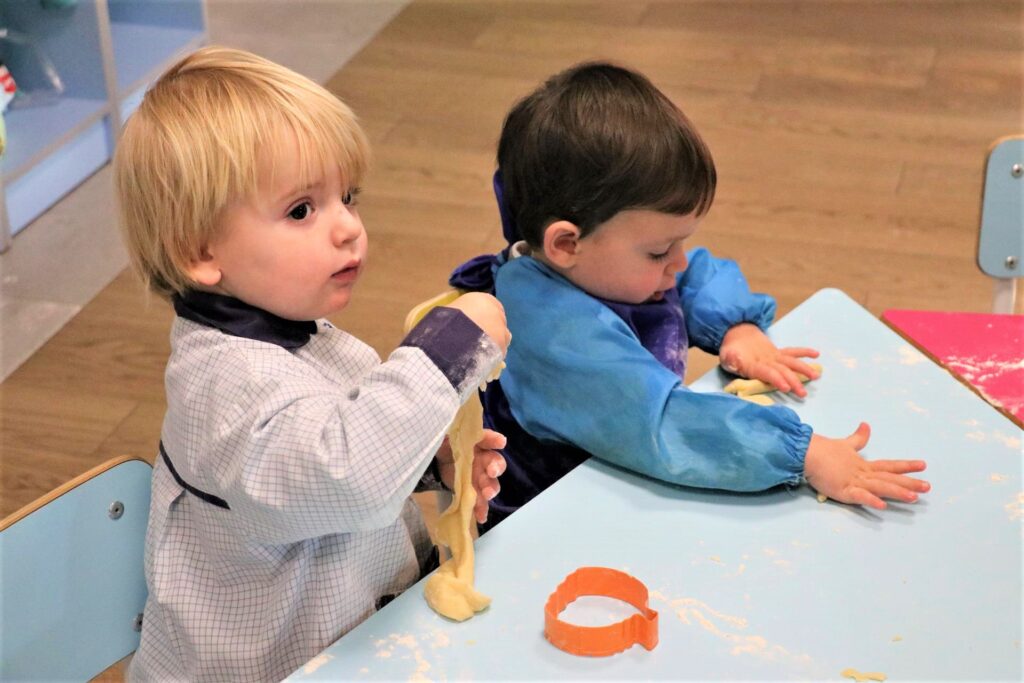
Continuous learning from home
However, it’s important that parents also participate and engage in these types of activities at home, such as educational board games or outdoor activities. This not only helps reinforce your connection, but also shows them that their playtime matters to you.
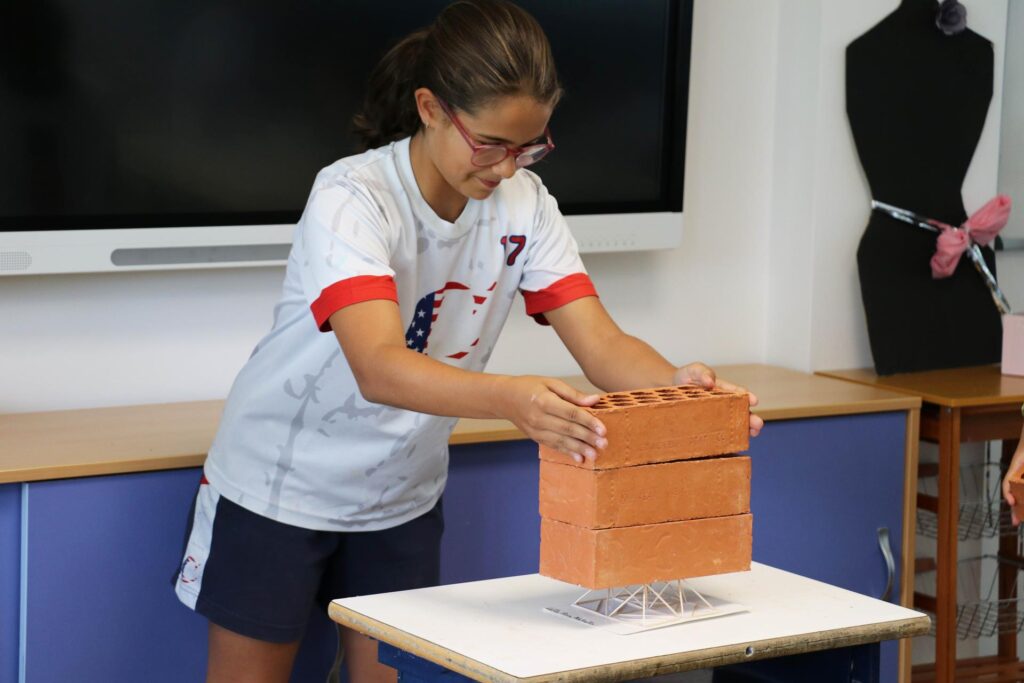
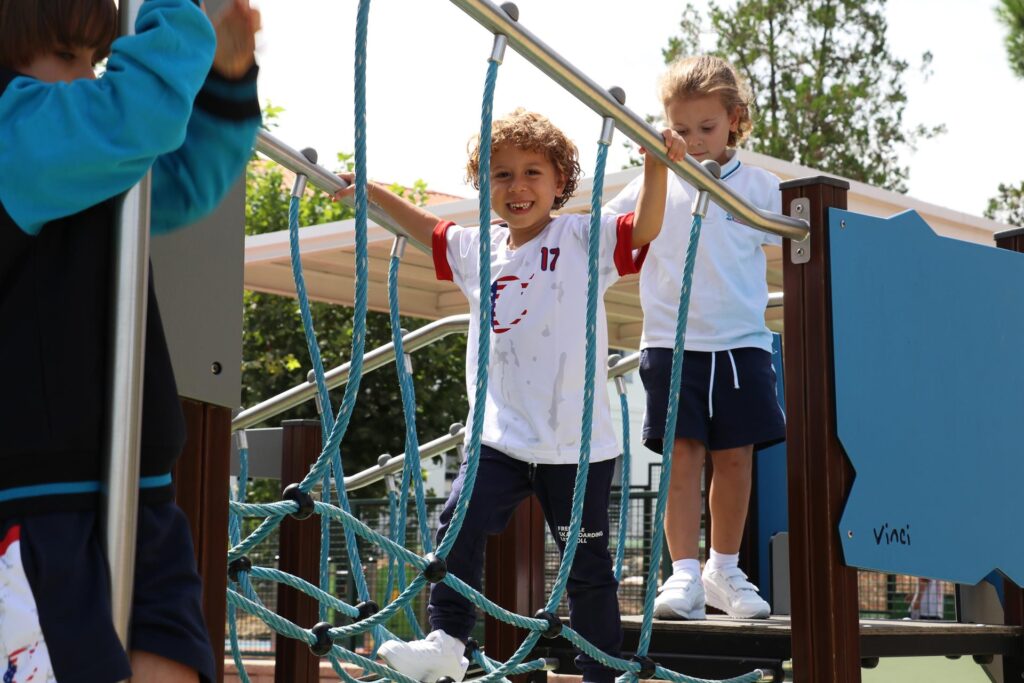
Examples to promote play-based learning
Building games. Thanks to these blocks, children develop fine motor skills and hand-eye coordination. They also encourage creativity and problem-solving abilities.
Painting and drawing. It helps stimulate creativity and artistic expression, as well as fine motor skills and concentration.
Imitation games promote empathy and understanding of both one’s own and others’ emotions. Additionally, gradually learning about different professions can help them get an idea of what career path to choose in the future.
With storytelling, children improve language skills, reading comprehension, and non-verbal expression. In many cases, it also allows them to become familiar with an audience (even if it’s just family). This, in turn, helps them manage and control emotions like nervousness.
Outdoor games are essential for children’s physical and emotional development. They also stimulate a sense of exploration and connection with nature.
Discover the learning methodology at Casvi International American School
At Casvi International American School, we strongly advocate for the importance of both intellectual development and personal growth. We believe it is essential for students to take an active role in their education.
Thanks to our International Baccalaureate (IB) methodology and the use of English as the language of instruction, from ages 3 to 18, students develop this proactivity, as well as other skills such as effective communication, critical thinking, and leadership.
If you are curious to learn more about our culture and teaching philosophy in Pre-School and Kindergarden , please contact our Admissions Department.

